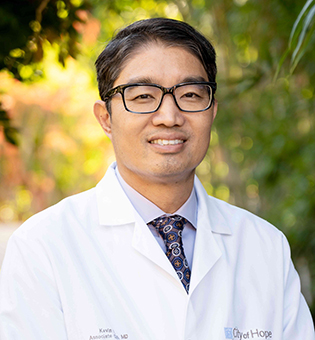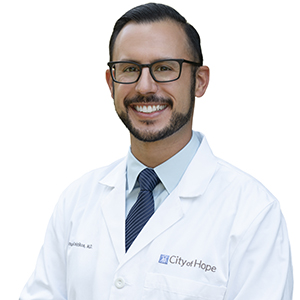Enlarged Prostate
An enlarged prostate, also called benign prostatic hyperplasia (BPH), is common in older men. The prostate is a walnut-sized gland that surrounds the urethra. It starts at the base of the bladder and runs through the middle of the prostate. Over time, an enlarged prostate can stop or slow urine flow, causing bladder and kidney problems.
As men age, the prostate grows. Sometimes, it can grow into the urethra, making the opening narrower. As a result, the bladder has to work harder to get urine out when this happens. Unfortunately, the bladder becomes more irritable when it works harder — meaning it will not tolerate holding urine well.
At City of Hope, we use several methods to diagnose an enlarged prostate. These include symptom score sheets, flow rate tests, postvoid residual measurement, cystoscopy, prostate volume measurements, prostate-specific antigen tests, and urine culture.
Working together with your urologist, you can determine a personalized treatment plan based on your preferences, prostate size and overall health.

City of Hope is a nationally recognized leader in researching and treating urologic cancers and has been named by U.S. News & World Report as one of America's top urology and cancer hospitals.
Just as no two patients are alike, an enlarged prostate requires a personalized treatment plan to obtain the best possible outcomes. City of Hope's renowned physicians and researchers utilize the latest technology and innovation to treat urologic conditions, coupled with our enduring belief in providing unparalleled compassionate care.
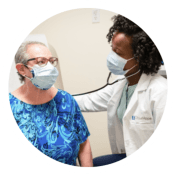
As a founding member of the National Comprehensive Cancer Network, our doctors also help develop and improve evidence-based prostate cancer treatment guidelines for patients throughout the country.

Our developments in the areas of breakthrough cancer drugs, bone marrow transplants and CAR T cell therapy are recognized internationally.

Our leadership in research and innovation continually enhances our ability to provide novel and differentiated approaches to cancer care.
Kevin Chan, M.D., is a urologic surgeon specializing in bladder cancer and surgical treatment of male urinary incontinence.
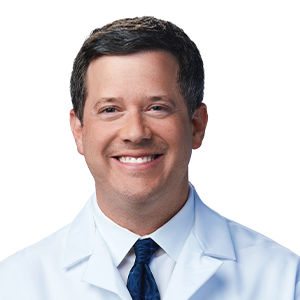
Seth Cohen, M.D., is a urologic surgeon with a focus on female pelvic medicine and reconstructive surgery at City of Hope's community practice sites in Orange County.

Tanya Barauskas Dorff, M.D., is a medical oncologist and professor in the Department of Medical Oncology & Therapeutics Research.
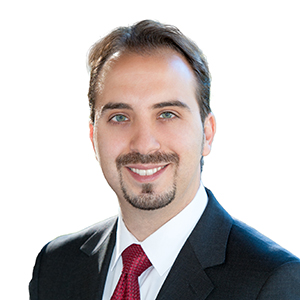
Donald Hannoun, M.D., is a surgeon practicing urology and urologic oncology at City of Hope | Antelope Valley and Santa Clarita.
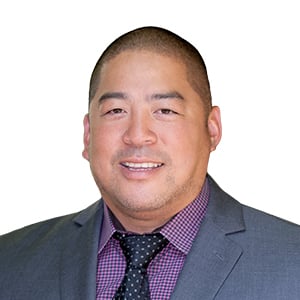
Clayton Lau, M.D., is chief of the Division of Urology and Urologic Oncology and an expert in prostate cancer.
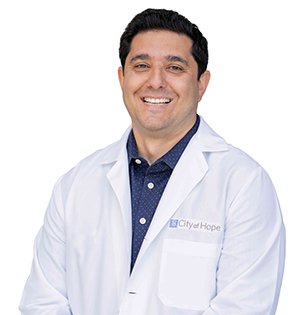
Pedram Aram, M.D., believes that doctors have the power to change lives. He is committed to making a positive impact on patients' lives by utilizing his expertise in benign/general urology, including treatment of prostate and testicular cancer, kidney cancer and transplant, and robotic-assisted and

Fornati Bedell, M.D., M.H.S., urologic surgeon and assistant clinical professor in the Division of Urology and Urologic Oncology within the Department of Surgery.
Kevin Chan, M.D., is a urologic surgeon specializing in bladder cancer and surgical treatment of male urinary incontinence.
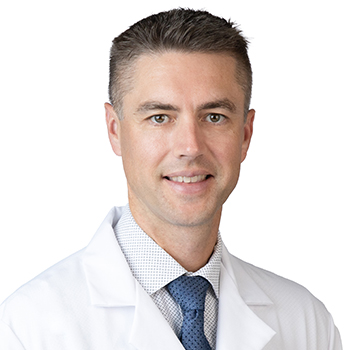
Cory Hugen, M.D., is an Associate Clinical Professor in the Division of Urology and Urologic Oncology in the Department of Surgery at City of Hope Orange County.
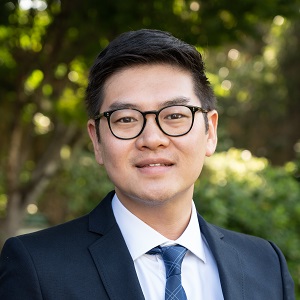
Michael Lao, M.D., is an assistant clinical professor practicing urology and urologic oncology at City of Hope in Antelope Valley and Santa Clarita.

Diana Londoño, M.D., is a urologic oncology surgeon in the Department of Surgery.
Emmanuel Mitsinikos, M.D., is a surgeon and assistant clinical professor in the Department of Surgery, Division of Urology and Urologic Oncology at City of Hope Upland.
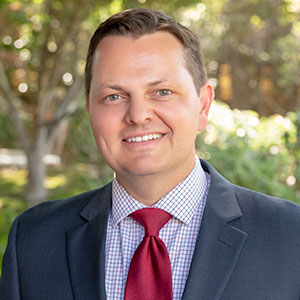
Jeremy Montez, M.D., is a urologic surgeon at City of Hope's Glendora and West Covina locations.
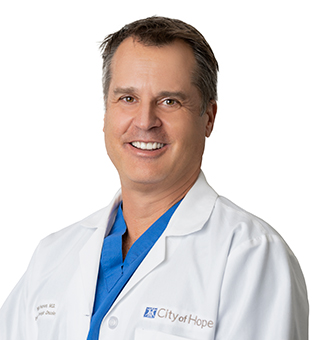
Philip G. Pearson, M.D., is a urologic surgeon at City of Hope's community practice site in Pasadena, California.
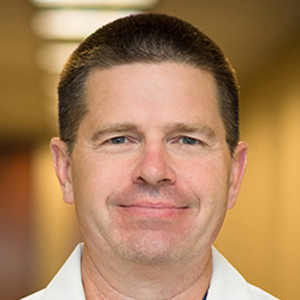
Roger Satterthwaite, M.D., is a urologic surgeon specializing in surgery for prostate, kidney, bladder and testicular cancers.
